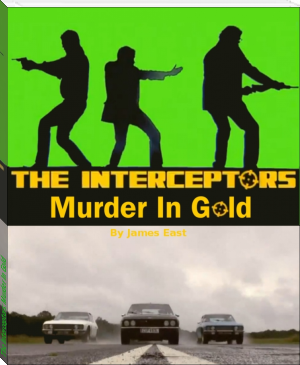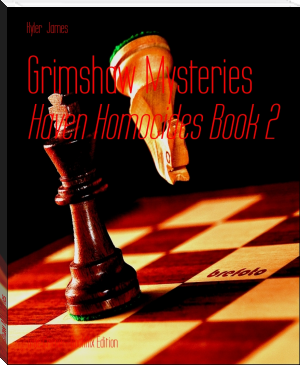Bad Seed - Jimmy Digital, True Crime Files (korean ebook reader txt) 📗

- Author: Jimmy Digital, True Crime Files
Book online «Bad Seed - Jimmy Digital, True Crime Files (korean ebook reader txt) 📗». Author Jimmy Digital, True Crime Files
Operator:This is Suffolk County Police. May I help you?"
Man: "We have a shooting here. Uh, DeFeo."
Operator: "Sir, what is your name?"
Man: "Joey Yeswit."
Operator: "Can you spell that?"
Man: "Yeah. Y-E-S W I T."
Operator: "Y-E-S . .
Man: "Y-E-S-W-I-T."
Operator: ". . . W-I-T. Your phone number?"
Man: "I don't even know if it's here. There's, uh, I don't have a phone number here."
Operator: "Okay, where you calling from?"
Man: "It's in Amityville. Call up the Amityville Police, and it's right off, uh . . . Ocean Avenue in Amityville."
Operator: "Austin?"
Man: "Ocean Avenue. What the ... ?"
Operator: "Ocean ... Avenue? Offa where?"
Man: "It's right off Merrick Road. Ocean Avenue."
Operator: "Merrick Road. What's ... what's the problem, Sir?"
Man: "It's a shooting!"
Operator: "There's a shooting. Anybody hurt?"
Man: "Hah?"
Operator: "Anybody hurt?"
Man: "Yeah, it's uh, uh — everybody's dead."
Operator: "Whattaya mean, everybody's dead?"
Man: "I don't know what happened. Kid come running in the bar. He says everybody in the family was killed, and we came down here."
Operator: "Hold on a second, Sir."
(Police Officer now takes over call)
Police Officer: "Hello."
Man: "Hello."
Police Officer: "What's your name?"
Man: "My name is Joe Yeswit."
Police Officer: "George Edwards?"
Man: "Joe Yeswit."
Police Officer: "How do you spell it?"
Man: "What? I just ... How many times do I have to tell you? Y-E-S-W-I-T."
Police Officer: "Where're you at?"
Man: "I'm on Ocean Avenue.
Police Officer: "What number?"
Man: "I don't have a number here. There's no number on the phone. "
Police Officer: "What number on the house?"
Man: "I don't even know that."
Police Officer: "Where're you at? Ocean Avenue and what?"
Man: "In Amityville. Call up the Amityville Police and have someone come down here. They know the family."
Police Officer: "Amityville."
Man: "Yeah, Amityville."
Police Officer: "Okay. Now, tell me what's wrong."
Man: "I don't know. Guy come running in the bar. Guy come running in the bar and said there — his mother and father are shot. We ran down to his house and everybody in the house is shot. I don't know how long, you know. So, uh . . ."
Police Officer: "Uh, what's the add ... what's the address of the house?"
Man: "Uh, hold on. Let me go look up the number. All right. Hold on. One-twelve Ocean Avenue, Amityville."
Police Officer: "Is that Amityville or North Amityville?"
Man: "Amityville. Right on ... south of Merrick Road."
Police Officer: "Is it right in the village limits?"
Man: "It's in the village limits, yeah."
Police Officer: "Eh, okay, what's your phone number?"
Man: "I don't even have one. There's no number on the phone. "
Police Officer: "All right, where're you calling from? Public phone?"
Man: "No, I'm calling right from the house, because I don't see a number on the phone."
Police Officer: "You're at the house itself?"
Man:"Yeah."
Police Officer:"How many bodies are there?"
Man: "I think, uh, I don't know — uh, I think they said four."
Police Officer: "There's four?"
Man: "Yeah."
Police Officer: "All right, you stay right there at the house, and I'll call the Amityville Village P.D., and they'll come down."
By the end of the evening, police investigators would find an additional two bodies, bringing the Ocean Avenue death toll to six. Six of seven members of the Ronald DeFeo family had been methodically murdered as they slept in their beds, leaving Ronald DeFeo, Jr., as the sole survivor of the grisly suburban bloodbath.
Ronald DeFeo, Sr thought he had attained the American dream when he purchased the
trophy-size house 112 Ocean Avenue in Amityville, Long Island. Having been born and raised in Brooklyn, Ronald had worked hard in his father-in-law's Brooklyn Buick dealership, and after many years began to reap rich benefits. Money was no longer a concern when he finally made the decision to leave the City and move to Long Island. The home he chose was a classic piece of Americana, two stories plus an attic, several rooms, and a boathouse on the Amityville River. There was plenty of room for him, his wife Louise; and five children. A signpost in the front yard read "High Hopes," a testament to what the new home had symbolized for the DeFeos.
But beneath the veneer of success and happiness, Ronald was a hot-tempered man, given to bouts of rage and violence. There were stormy fights between him and Louise, and he loomed before his children as a demanding authority figure. As the eldest child, Ronald, Jr., bore the brunt of his father's temper and expectations. As a young boy, Ronald, Jr., or Butch as he would come to be called, was overweight and sullen, the victim of schoolyard taunts and unpopular with other children. His father encouraged him to stick up for himself, but while his advice pertained to the treatment of schoolyard bullies, it apparently did not apply to how young Ronald was treated at home. Ronald, Sr., had no tolerance for backtalk and disobedience, keeping his eldest son on a short leash, and refusing to let him stand up for himself the way he was commanded to at school.
As Butch matured Shouting matches often degenerated into boxing matches, as father and son came to blows with little provocation. Ronald, Sr realized that his son's bouts of temper and violent behavior were highly irregular, even in relation to his own. He and his wife arranged for their son to visit a psychiatrist, but to no avail as Butch simply employed a passive-aggressive stance with his therapist, and rejected any notion that he himself needed help.
With no other solution, the DeFeos employed a time-honored strategy for placating unruly children: they started buying Butch anything he wanted and giving him money.At the age of 14, his father presented him with a $14,000 speedboat to cruise the Amityville River. Whenever Butch wanted money, all he had to do was ask, and if he wasn't in the mood to ask, he simply took it.
By the age of 17, Butch was forced to leave the parochial school he was attending. By this time he had begun using serious drugs such as heroin and LSD and had also started dabbling in petty thievery schemes. His violent behavior was becoming increasingly psychotic as well, and was not confined to outbursts within his home. One afternoon while out on a hunting trip with some friends, he pointed his loaded rifle at a member of their party, a young man he had known for years. He watched with a stony expression as the young man's face turned white. He fled, and Butch calmly lowered his gun. When they caught up with their friend later that afternoon, Butch asked him why he had left so soon.
At the age of 18, Butch was given a job at his grandfather's Buick dealership. By his own account it was a gravy job, where little was expected of him. Regardless of whether or not he showed up for work, he received a cash allowance from his father at the end of each week. This he used for his car (which his parents had also purchased), for alcohol, and for drugs such as speed and heroin.
Altercations with his father were growing ever more frequent and correspondingly more violent. One evening, a fight broke out between Mr. and Mrs. DeFeo. In order to settle the matter, Butch grabbed a 12-gauge shotgun from his room, loaded a shell into the chamber, and charged downstairs to the scene of the altercation. Without hesitating or calling out to break up the fight, Butch pointed the barrel of the gun at his father's face, yelling, "Leave that woman alone. I'm going to kill you, you fat f***! This is it." Butch pulled the trigger, but the gun mysteriously did not go off. Ronald, Sr. froze in place and watched in grim amazement as his own son lowered the gun and simply walked out of the room with casual indifference to the fact that he had almost killed his father in cold blood. That fight was over, but Butch's actions foreshadowed the violence he would soon unleash not only upon his father, but his entire family.
In the weeks before the killings, relations between Butch DeFeo and his father had reached the breaking point. Butch, apparently dissatisfied with the money he "earned" from his father, had devised a scheme to further defraud his family. Two weeks before the slayings, Butch was sent on an errand by one of the staff at the Buick dealership, given the responsibility of depositing $1,800 in cash and $20,000 in checks in the bank. Instead, Butch arranged to be "robbed" on his way to the bank by an acquaintance, with whom he later split the cash.
On the Friday before the murders, Butch had been asked by the police to examine some mug shots in the possibility that he might be able to finger the thief. He initially agreed, but pulled out at the last minute. When Ronald, Sr. heard of this, he confronted his son at work, demanding to know why he wouldn't cooperate with the police. "You've got the devil on your back," his father screamed at his son. Butch didn't hesitate. "You fat prick, I'll kill you." He then ran to his car and sped off. This fight had not come to blows. But the final confrontation was imminent.
The still shroud of night blanketed the village of Amityville in the early morning hours of Thursday, November 14, 1974. Stray house pets and the odd car were the only signs of life as families and neighbors slumbered. But hatred and savagery were brewing beneath the seeming calm at 112 Ocean Boulevard. The entire DeFeo family had gone to bed, with the exception of Butch. As he sat in the quiet of his room, he knew what he wanted to do, what he in fact was going to do. His father and his family would be a nuisance to him no longer.
Butch was the only member of the family with his own room. It afforded him a private storage place for a number of weapons he collected and sometimes sold. On the night of the murders, Butch selected a .35-caliber Marlin rifle from his closet, and set off, stealthily but resolutely, towards his parents' bedroom.
He quietly pushed aside the door to their room and momentarily observed them as they slept, unaware of the horror at the foot of their bed. Then, without hesitation, Butch raised the rifle to his shoulder and pulled the trigger, the first of 8 fatal shots he would fire that night. This first shot ripped into his father's back, tearing through his kidney and exiting through his chest. Butch fired another round, again hitting his father in the back. This shot pierced the base of Ronald, Sr.'s spine, and lodged in his neck.
By now, Louise DeFeo had roused herself, and had barely a few seconds to react before her son began to fire upon her. Butch aimed the weapon at his mother as she lay prone on her bed, and fired two shots into her body. The bullets shattered her rib cage and collapsed her right lung. Both bodies now lay silently in fresh pools of their own blood.
Despite the distinct snap of each rifle shot, no one else stirred in the house. Butch quickly surveyed the destruction he had wrought, before resuming his massacre of the innocent. His two young brothers, John and Mark, would be the next victims of Butch's murderous sense of self-righteousness and rage.
Mark & John Mathew DeFeo,victims
He entered the bedroom the two boys shared and stood between their two beds. Standing directly above his





Comments (0)